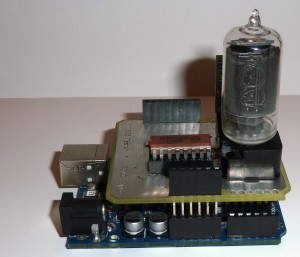 Recently, i purchased a big lot of Philips ZM1000 Nixies, and needed a test PCB to test out if all was good – i got sockets for a number of the tubes, so i settled on making a PCB with the correct socket, so I easily can test them.
Recently, i purchased a big lot of Philips ZM1000 Nixies, and needed a test PCB to test out if all was good – i got sockets for a number of the tubes, so i settled on making a PCB with the correct socket, so I easily can test them.
Being fond of the Arduino, i just thought, why not make it an Arduino shield – this way it’s a nice compact solution, powered by the USB-port, and no extra cables needed.
I earlier on aquired one of the real nice high voltage supplies, perfect for nixies from Taylor Electronics
So i made a single PCB that fits the small power supply module, a socket for a 74141 Nixie driver, and a socket for the ZM1000 tube.
I milled the PCB on our PCB milling machine in the local hackerspace where i frequent, Labitat
I did not mount all the headers on the finished PCB, since they are not in used. The use of stacking headers are a little waste, since there is no way I can mount anything on top of the Nixie PCB, but they make the PCB headers more mechanically stable, since they are soldered on on the bottom side of the PCB.
A small video of the circuit in operation, running a simple counting program, testing all digits: Youtube
Video:
You can get the Eagle PCB files for the project here: ZM1000_Shield
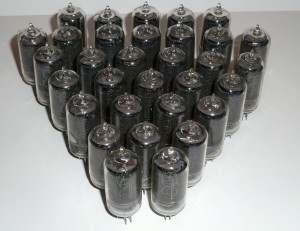
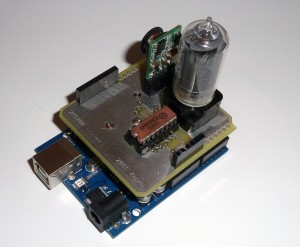
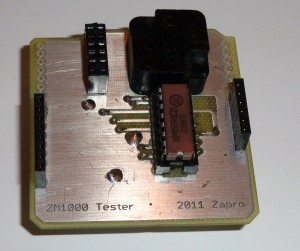
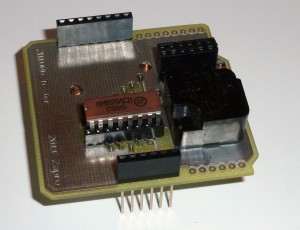
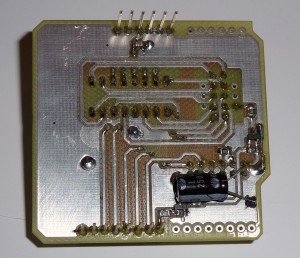
November 16th, 2015 at 13:27
Would you be willing to sell any of the zm1000 tubes? I’ve been looking for some and they are hard to find.
November 16th, 2015 at 14:11
Sorry, no.
I’m holding on to them for future projects.
They come up on eBay from time to time – there even is some on eBay right now.
Otherwise try writing on the “Neonixie-L”-mailinglist.
February 1st, 2016 at 20:57
Hi! I’m looking for ZM1000 socket, where did you find yours?
February 1st, 2016 at 23:18
I bought them with the tubes. Look on eBay for them.
December 9th, 2017 at 12:05
Hi,
Recently got my hands on a few of these tubes as well including SN7441AN chips, what are you using in your design to drive the tubes?
regards,
Leo
December 9th, 2017 at 13:17
Drive?
The driver is the 74141 and the high voltage supply is the Tayloredge 1363